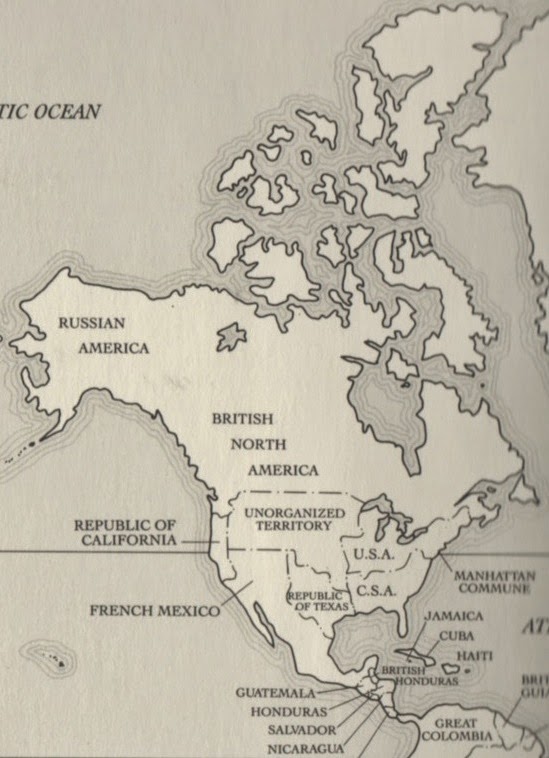Tuesday, 6 January 2015
Lying Russians and Lazy Irishmen
Now that we've all three finished John A.'s Crusade, I can finally mention my chief complaint: The sale of Alaska to the Americans.
Yes, we all knew it was going to happen. The anachronisms are accidents – Rohmer didn't mean to set the novel in an alternate universe.
My question is why. Why does Russia decide to sell the Alaska to the Americans?
As I remember it – please keep in mind that it's been more than six weeks since I finished this thing – all comes down to the Russians saying one thing and doing another. As Rohmer's novels teach, drunk or sober, Russians can't be trusted. Fair enough, but given that this is the decision around which the whole plot turns I expected more.
Or do I simply not remember?
In her Globe & Mail review (20 May 1995), Elizabeth Abbott writes: "Rohmer deals with this in a startling denouement in which we learn what Macdonald never did: precisely why the czar changed his mind."
Is Elizabeth Abbott right?
Am I wrong?
In the latter case, allow me to save face by correcting Professor Abbott: Our first prime minister didn't actually leave the London Conference for a top secret meeting with Alexander III.
A final complaint (because, really, after two months shouldn't we be done with it?): The half-hearted Fenian attempt on Macdonald's life. Coulda stabbed him as he slept. Coulda shot him through the heart. Instead, his room is set alight, the flames so weak that the rest of the hotel patrons sleep undisturbed.
The Fenians were never so subtle. For goodness sake, they shot D'Arcy McGee through the head a block from Parliament Hill! With Macdonald, some kid named Kelly – sorry, Chris – botches the job, after which they just give up. I was reminded of nothing so much as the Mafia's brutal attack on Paul James, Franz Huber and his ugly daughter in Retaliation. That was really something! But after it failed everyone went home, never to speak of it again.
Ah, well, at least they tried.
Subscribe to:
Post Comments (Atom)


No comments:
Post a Comment